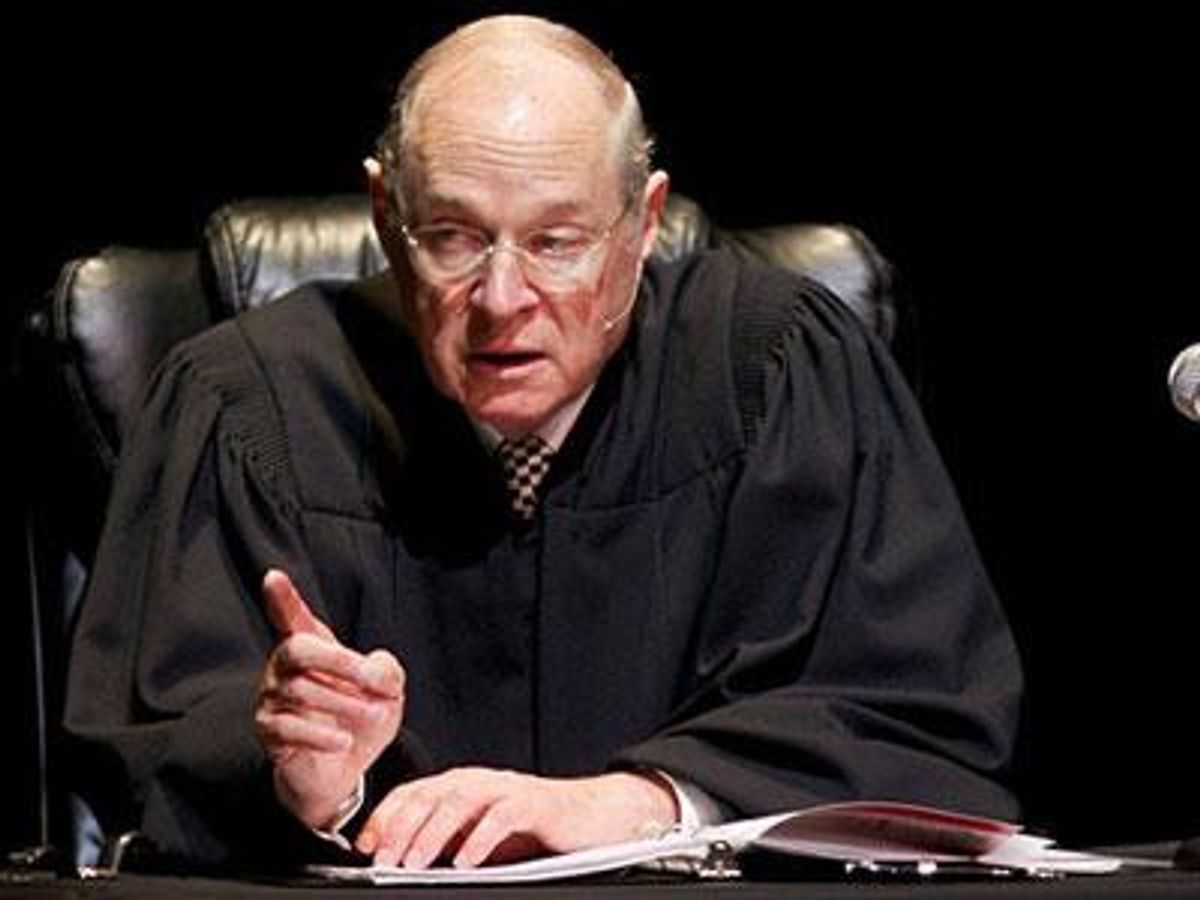The pending arguments over the Defense of Marriage Act and Proposition 8 in the Supreme Court once again thrust the views of Justice Anthony Kennedy into the spotlight while revealing sharp distinctions with his fellow conservative, Justice Antonin Scalia.
This past Friday, the high court announced it would hear a challenge to the Defense of Marriage Act from New York and the challenge to the California marriage ban. Oral arguments are expected in March, with a decision to be issued before the court ends its session in June.
Kennedy, a libertarian conservative, and Scalia, a social conservative, will likely be on opposite sides of the issue, the Los Angeles Times reports. Whereas Scalia, the more senior of the two, believes the law can enforce moral standards, Kennedy believes the Constitution protects the freedom of individuals where personal relationships are concerned.
President Ronald Reagan appointed Scalia and Kennedy, who are both Catholics and 76 years old. They graduated from Harvard Law School within one year of each other, and identified as Republicans in their legal careers. Scalia and Kennedy both took the same side against President Obama's healthcare reform law, and they shared the majority opinion in the Citizens United campaign finance case.
On the other hand, Kennedy has departed from Scalia in voting to uphold abortion rights and LGBT rights. The two clashed in the 1996 Romer v. Evans decision that struck down a Colorado amendment prohibiting protected status for sexual orientation. Scalia also disagreed when Kennedy wrote the majority opinion in the 2003 Lawrence v. Texas decision that struck down anti-sodomy laws.
According to the Times, Kennedy's past writings suggest he is likely to agree with opponents of DOMA, as well as find a broad federal constitutional right to marry beyond California in the Prop. 8 case. Also, if Kenney were to side with the four liberal justices, as the most senior of that group, he would be able to write the majority opinion.
"His Colorado opinion could justify overturning the California voter initiative because it stripped gays and lesbians of legal rights they had won in the state courts. This option, adopted by the 9th Circuit Court of Appeals, would clear the way for gay marriage only in California," according to the Times. "But in the Texas case, Kennedy described marriage as one of several 'intimate and personal choices' that are the right of individuals and are not left up to the government. That suggests he might write a sweeping opinion that makes marriage equality a national right."

















































































